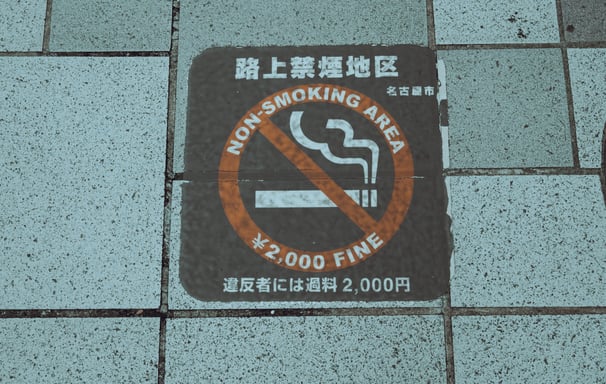Prohibiting Smoking in Public Places
Explore innovative research topic ideas for 2025 on prohibiting smoking in public places. Discover the impact of public smoking bans and effective strategies to promote healthier environments.
QUANTITATIVE RESEARCH
Realyn Manalo
5/7/20253 min read


What happens when a tobacco giant says yes to a smoking ban?. It’s not every day you hear a cigarette company support rules that could limit its own business. But that’s exactly what British American Tobacco Philippines just did. Their CEO, James Lafferty, publicly backed the idea of a nationwide smoking ban in public places. He even welcomed stronger enforcement across all local government units. While this might seem surprising, BAT claims it’s all part of being a responsible player in a controversial industry. They have also supported other laws like the Sin Tax and Graphic Health Warning acts in the past.
But here’s the twist. If even a tobacco company sees no problem with stricter smoke-free rules, why are many public places still filled with cigarette smoke? Despite existing laws like RA 9211, enforcement is inconsistent. Some areas follow the rules strictly while others barely implement them. This shows there’s a bigger problem—the lack of consistent and nationwide implementation. If we truly want cleaner air and healthier communities, research is needed to uncover what’s holding us back and how to finally make every public place smoke-free, not just on paper but in real life.
Who Can Use These Topics
This research is ideal for students and professionals pursuing the following courses or strands:
College Programs:
BS in Public Health
BS in Criminology
BS in Communication
BA in Political Science
BS in Social Work
Senior High School Strands:
Humanities and Social Sciences (HUMSS)
General Academic Strand (GAS)
Why This Topic Needs Research
Despite national policies, the reality on the ground shows persistent challenges in enforcement and social compliance. Key research gaps include:
Cultural adaptation of anti-smoking norms: While Lelewi Village institutionalized smoking bans through customary practices, its scalability to urban or intercultural settings is unclear. Researchers recommend exploring how culturally rooted models can be adapted to diverse communities (Noe et al., 2025).
Inequitable enforcement in rural and tobacco-dependent areas: Despite the progress of KTR policies, local enforcement varies greatly. Further research is needed on community-based monitoring and resistance from regions economically tied to tobacco (Mayansara et al., 2025).
Institutional implementation in government offices: A study in Pariaman showed that weak sanctions, inconsistent oversight, and workplace norms hamper compliance. Broader evaluations are needed to analyze cross-institutional implementation patterns (Synthia & Krianto, 2025).
Medical students as anti-smoking role models: Although many students are exposed to violations, the role of medical education in empowering them as smoke-free advocates remains underexplored. Future research should assess curriculum content and advocacy training (Aslan et al., 2025).
Public awareness and policy communication gaps: In some LGUs, low visibility and engagement with smoke-free ordinances hinder compliance. Future studies should explore how communication strategies and community partnerships can improve outcomes (Tenorio, 2025).
Legal knowledge and task force capacity: EO No. 26 and the Tobacco Regulation Act provide clear guidelines, but enforcement remains uneven. Researchers are urged to examine local legal literacy and the capacity of LGU-based task forces (Epsyke, 2022).
Scalability of best-practice models like Baguio City: Baguio’s success relied on strict monitoring and inter-agency collaboration. More research is needed to test whether its strategies can be replicated in lower-capacity municipalities (Bahingawan et al., 2024).
Feasibility & Challenges by Target Group
Get Your Free Thesis Title
Finding a well-structured quantitative research topic can be challenging, but I am here to assist you.
✔ Expertly Curated Topics – Not AI-generated, but carefully developed based on existing academic studies and research trends.
✔ Comprehensive Research Support – Includes an existed and updated research gaps, explanation of variables as well as SDG relevance.
✔ Personalized for Your Field – Get a thesis title tailored to your academic requirements and research interests.
Prefer video content? Subscribe to my YouTube Channel for expert insights on research topics, methodologies, and academic writing strategies.
References
Aslan, D., Ay, P., Raymond, K., Aşut, Ö., Abuduxike, G., Şengelen, M., ... & Dağlı, E. (2025). Medical Students’ Tobacco Consumption Status and Experiences with Smoke-free Law Violations in Enclosed Spaces in Türkiye and Northern Cyprus. Thoracic Research and Practice, 26(2), 48.
Bahingawan, J. K., Bangyod, J., Galang, A., Manansala, E. M., Morales, S., Pacalso, H., ... & Togana, N. (2023). The Right to a Healthy Environment: Practices for a Smoke-Free Environment. Available at SSRN 5072384.
Epsyke, J. K. (2022). Legal sanctions for smokers who smoke in public places in Philippines.
Mayansara, A., Yanti, S. D., & Anita, F. (2025). Implementation of the No Smoking Area (KTR) Rule: Progress, Setbacks, and Future Projections of Tobacco Control. International Journal of Science Technology and health, 3(1), 1-8.
Noe, W., Umar, S. H., Bunta, A. F., & Lantemona, F. (2025, March). Preserving The Customary Environment Of Smoking Prohibition As An Effort To Strengthen The Character Of Environmental Care. In 5th Annual Civic Education Conference (5th ACEC 2024) (pp. 188-195). Atlantis Press.
Synthia, D., & Krianto, T. (2025). Evaluation Over the Implementation of the No-Smoking Policy in Pariaman City Transportation Office: A Qualitative Study. International Journal of Health, Economics, and Social Sciences (IJHESS), 7(1), 212-218.
Tenorio, C. B. (2025). Knowledge, Attitude, and Practice, on Smoke-Free Environment Policy in Local Government Unit in Soutehern Philippines: Developing Intervention Programs. Journal Governance and Innovation, 1(1), 65-75.
